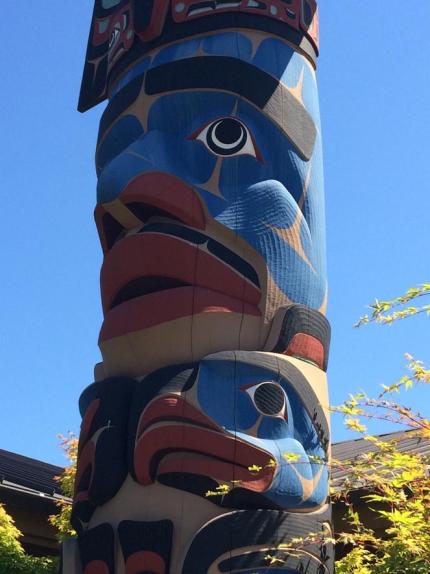
Tribal sovereignty refers to the right of American Indians and Alaska Natives to govern themselves. The U.S. Constitution recognizes Indian tribes as distinct governments and they have, with a few exceptions, the same powers as federal and state governments to regulate their internal affairs.
Washington State and WDFW have a unique relationship with Northwest Tribes with shared responsibilities in stewardship, conservation, and resource management. Since time immemorial Indigenous People have lived in this region long before statehood and European contact. The combined tribal cultures, linguistics and art are the very essence of the Pacific Northwest. In this same spirit, WDFW and tribal partners work together on many fronts to sustain fish, wildlife, and habitats.
Presently there are 29 federally recognized tribal governments that reside within Washington State, of which 21 are treaty tribes and 8 additional tribes are executive order tribes (or recognized by Act of Congress). Further, three treaty tribes located outside of Washington have off-reservation treaty rights in the Columbia River and/or Blue Mountains region.
A Culture of Tribal Governance
American Indians and Alaska Natives are members of the original Indigenous Peoples of North America. Today, most tribes are federally recognized as sovereign nations with a unique political governance status.
A Political Relationship
Native peoples and governments have inherent rights and a political relationship with the U.S. government that does not derive from race or ethnicity. Tribal members are citizens of three sovereign entities: their tribe; the United States; and the state in which they reside.
Tribes as Nations
The governmental status of tribal nations is at the heart of nearly every issue that touches Indian Country. Self-governance is essential for tribal communities to continue to protect their unique cultures and identities. Tribes have the authority to govern matters involving their members, as well as a range of issues within Indian Country.
The essence of tribal sovereignty is the ability to govern and to protect and enhance the health, safety, and welfare of tribal citizens within Indian Country. Tribal governments maintain the power to determine their own governance structures and enforce laws through police departments and tribal courts. Tribal governments exercise these rights through determining citizenship; establishing and enforcing civil and criminal laws; taxing; licensing; regulating; and exercising the power to exclude wrongdoers from Indian Country.
In addition, tribal governments are responsible for a broad range of government activities on tribal lands, including education, law enforcement, judicial systems, health care, environmental protection, natural resource management, and the development and maintenance of basic infrastructure such as housing, roads, bridges, sewers, public buildings, telecommunications, broadband and electrical services, and solid waste treatment and disposal.